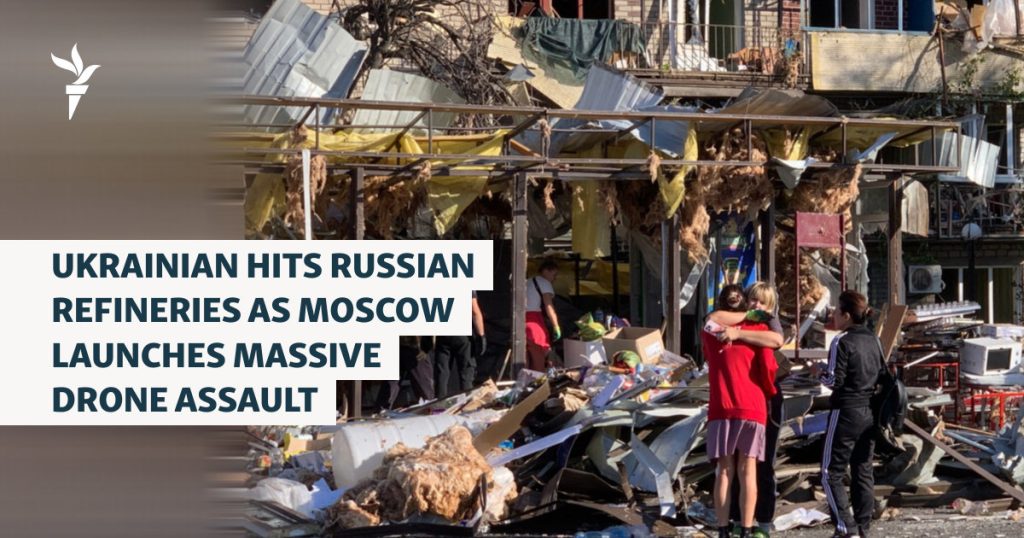### Ukrainian Drone Strikes on Russian Oil Refineries: A Bold Move
In a significant escalation of the ongoing conflict, Ukrainian drone forces targeted two major Russian oil refineries—Krasnodar in southern Russia and Syzran in the Samara region—on the night of August 30. This strategic operation led to fires and explosions in facilities vital for Russian military logistics.
### Objectives of the Operation
According to Ukraine’s General Staff, the drone strikes were meticulously planned in coordination with Special Operations Forces. The primary aim was to cripple Russia’s offensive capabilities by complicating fuel supplies to its military units. By targeting these refineries, Ukraine seeks to impede Russia’s ability to sustain prolonged military operations.
### The Impact of the Strikes
The Krasnodar refinery, one of the largest in Russia, produces approximately 3 million tons of gasoline, diesel, and aviation fuel annually. The Syzran refinery is even larger, with a processing capacity of up to 8.5 million tons each year. Damage assessments were quickly initiated following the strikes, although thankfully, no casualties were reported.
### Russian Response: A Massive Aerial Offensive
In retaliation, Russian forces launched one of the largest aerial offensives seen in weeks. A staggering total of 537 drones and 45 missiles were fired at various targets across Ukraine. The precision of Ukraine’s air defense was remarkable; the Ukrainian air force successfully intercepted 510 drones and 38 missiles. However, the sky was not without its tragedies—five missiles and 24 drones struck seven locations, resulting in falling debris at 21 sites.
### Casualties and Damage in Zaporizhzhya
Russian strikes in Zaporizhzhya caused immediate devastation, killing one person and injuring 22 others, among them three children. Residential areas, including apartment blocks and industrial sites, suffered significant damage. Multiple fires erupted in the wake of the attacks, underscoring the human cost of the ongoing military exchanges.
### Diplomatic Tensions and Calls for Sanctions
Amid the escalating violence, Ukrainian President Volodymyr Zelenskyy made a passionate appeal, accusing Moscow of manipulating diplomatic discussions to ramp up military attacks. He urged the international community to impose stricter sanctions against Russia’s banking and energy sectors, arguing that effective measures are essential to constrict the funding of the Russian military.
Zelenskyy’s remarks on social media highlighted the urgency of the situation. He expressed that the only pathway to potential diplomatic engagement lies through tough sanctions that directly affect those backing the Russian war effort.
### Efforts for Peace Talks
In a recent development, Ukraine indicated its acceptance of a U.S. cease-fire proposal and called for a meeting between President Zelenskyy and President Vladimir Putin. However, Moscow’s response has been tepid, with Kremlin spokesman Dmitry Peskov reiterating that while Putin has not ruled out the possibility of meeting Zelenskyy, such discussions would only take place once substantial progress is achieved “at the expert level.”
### Global Military Aid and Response
On the international front, the United States took a significant step by approving an $8.5 billion deal to sell Patriot air-defense systems to Denmark. Denmark plans to transfer these advanced systems to Ukraine as part of its efforts to bolster air defenses in light of escalating attacks. Other NATO nations are reportedly making similar arrangements, striving to enhance Ukraine’s military capabilities, especially as U.S. funding for arms transfers faces uncertainty.

